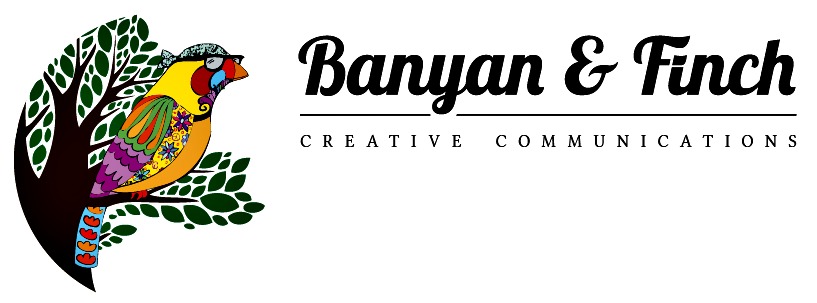IMPROVING YOUR SHOT AT GETTING THAT GRANT MONEY
Let’s get to it: MONEY. Depending on who you are and where you’re at, it might make you put your face in a barf bag or bust a happy dance with a magnum bottle of Dom. No matter how you feel about it, the world is awash with cash. And guess what, amigo? There are heaps upon heaps…MOUNTAINS of it, ripe for the taking if you’re a writer or other creative. You just need to shore up the gazoongas to toss your hat into the ring for it.
But, I’m not ready, you’re thinking. I’m just starting out. MY MAGNUM OPUS IS NOT FINISHED YET! GAH!!!!
PUH-SHAW!
Get 👏 Over 👏 Your👏 Self.
Because there’s likely a grant or a bursary or some other juicy sack of cash just waiting for li’l ol’ you to get your grubbydeserving paws all over it.
My hubby was the Managing Director and Grants Administrator for a literary group for well over a decade. Between the two of us, we have a lot of experience reading, editing, critiquing, tweaking (and yes, evaluating) writing and the applications folks put together when they’re looking to get free $$$.
Here are our tips for getting a leg up on getting that money:
1. Mine the mission. Before anything, know exactly who’s dolling out the dough. Deep dive their About page, then plough through the rest of their site. Stalk their Instagram posts. Dig. Dig. Dig. Understand the purpose, tone, values and style of who’s funding the grant and – more importantly – if your own work is in alignment. If it’s not? Move on. Don’t waste your time (and theirs) trying to shoehorn a whale into a doghouse. (Spoiler: it won’t fit. It’ll be ugly. And trying will be an epic waste of time.)
2. Give ’em what they want. On top of the guidelines, grants often include a list to check against a submission before sending. It’ll tell you precisely what’s wanted. USE IT. The administrators want to see specific items. It levels the field to judge what is normally, a Kilimanjaro-sized stack of unique applications. Especially in creative endeavours, like writing, quantifiable, objective criteria make it possible for a panel to come to a fair consensus. This might include a list of personal questions and a summary of your credentials. Perhaps a synopsis of your piece and how you plan to use the money ifwhen (manifesting works, y’all!) you’re the recipientwinner (affirmations, good too)! Maybe they want a finished manuscript or just a few choice chapters for a taste. If the grant application asks for it, make sure it’s in there. Every single stinkin’ piece. Conversely,
3.Chop the rest. Don’t go all brown-nose-Betty and attach a bunch of stuff or details the guidelines don’t call for. Really. Nothing more. But, you lament, THE NUANCES!
MY GENIUS CAN’T POSSIBLY BE CONTAINED BY THESE DRACONIAN GUIDELINES!

Yes. Yes, it can.*
Because putting in all those extras screams: “Your grant isn’t worthy of my greatness!” and “This isn’t important enough to bother reading your dumb rules!” Not a good look. It’s disrespectful of the funder’s time (an even worse look). And it exponentially raises your chances of ending up in the dreaded disqualified pile.
4. Always, always ALWAYS BE ON TIME. Late, at best, annoys admins with a lack of respect for guidelines, needs and time.
At worst, it does all of those…and gets your application tossed.
5. Only the finest! Submit only your best work. From the hubs, “We can tell when it’s a first draft. Or even a third. We want to read that fourth or fifth or tenth draft. It’s the one that’s polished and clear and will shine the brightest. In short: it’s the one that has the best chance of winning.”
6. Review the shizzle out of it. Have a trusted source review EVERYTHING. The grant application instructions and every item you’re including. Ask them to be ruthless with grammar, clarity, formatting, the small and more advanced holes in the narrative…all of it. Says dear husband, “Be sure you’re relying on a person whose critical eye you trust. Who will give you truthful, brutal, gut-wrenching, kill-all-your-darlings feedback. It’ll make your writing – and your application – better. Ask them if they enjoyed your story. If they didn’t, we probably won’t, either.”
7. Make sure it’s accessible. Know, without question, that everything you send can be opened, clicked and read. Double and then triple check to be sure! There’s no point in sending corrupted attachments or files not viewable in the specified format or without the right permissions enabled for a third party to read. “People send files we can’t get to all the time.” says the hubs, “It’s frustrating because grant admins want to give the best candidate the prize. We want them to win. But we’re not going to debug – or risk our own systems opening – something that’s corrupted”. Translation: if they can’t open it, it’s the slush pile for you.
BOTTOM LINE: What’s clutch in applying for a grant or bursary: read and follow the freaking guidelines. Every word. Don’t skim. Take the rules to heart. The receivers will love you for it. And it’ll put you well ahead of a good chunk of the pack from the get-go.
*Not sure how to approach squeezing all of your brilliance into a grant or bursary application (for your writing or whatever else)? I can help! Hit me up here to see how we can work together!

